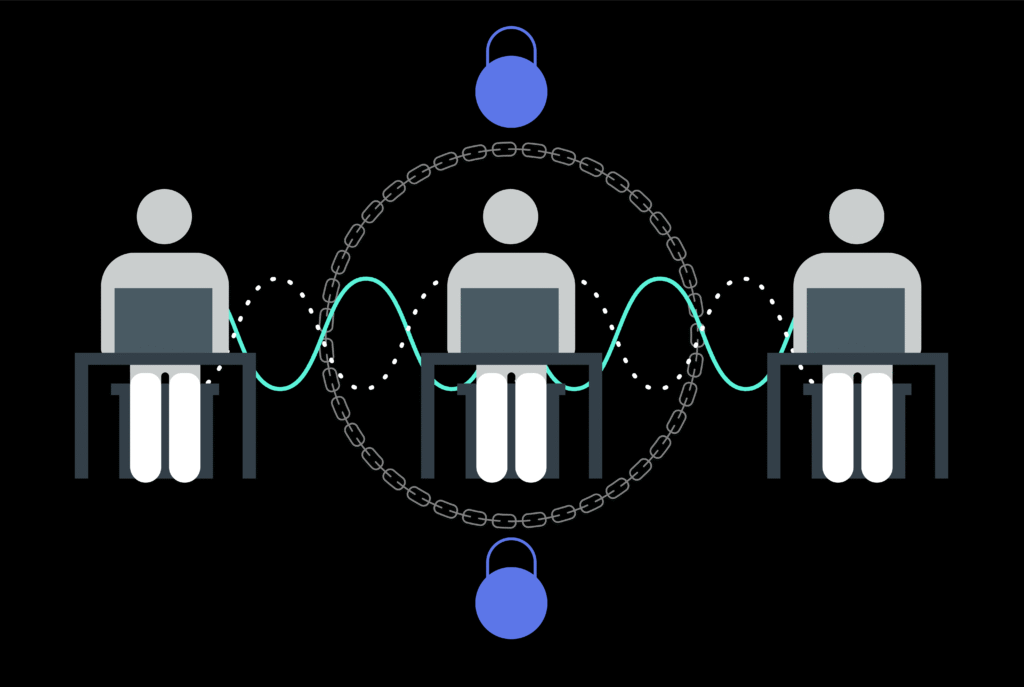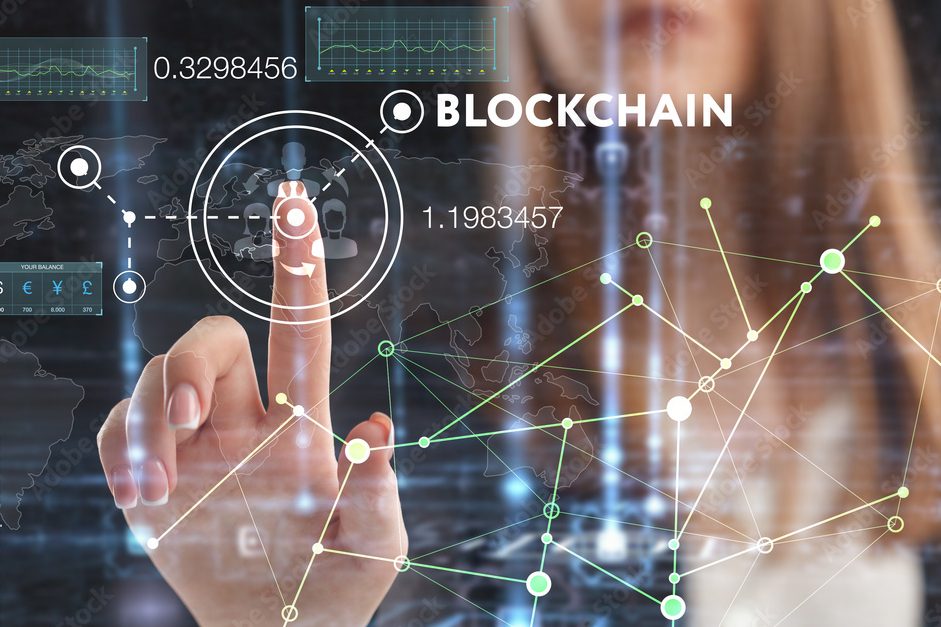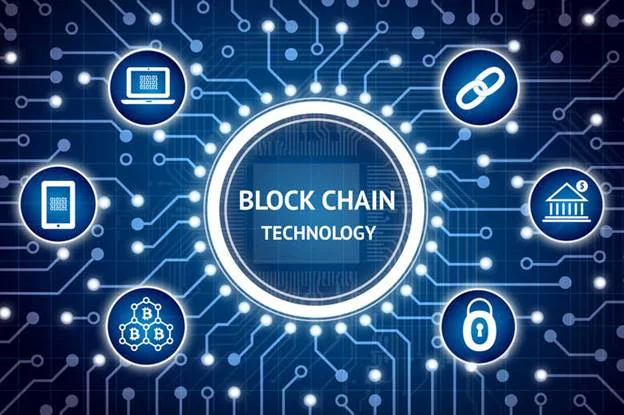Blockchain technology is no longer a buzzword; it’s a transformative force reshaping industries from finance to healthcare, supply chain to entertainment. Whether you’re a tech professional, entrepreneur, or enthusiast, understanding blockchain can open doors to new opportunities. Taking a blockchain course is one of the best ways to gain structured knowledge and practical skills in this evolving field.
In this article, we’ll explore what exactly you can learn from a blockchain course, why it’s valuable, and how it can equip you for the future. We’ll also answer some frequently asked questions and provide a conclusion and key takeaways for quick reference.
Key Takeaways
- Blockchain courses cover fundamentals, cryptocurrencies, smart contracts, platforms, security, and real-world applications.
- Courses provide both theoretical knowledge and practical skills through hands-on projects.
- Blockchain technology is more than just cryptocurrencies; it has broad applications across various industries.
- A blockchain course can boost your career prospects and prepare you for future technological trends.
- Beginners and technical professionals alike can benefit from blockchain education.
- Staying updated on blockchain trends like NFTs, DeFi, and Web3 is crucial for long-term success.
- Certification from recognized blockchain courses can enhance credibility and job opportunities.
Introduction to Blockchain Technology

Before diving into the learning outcomes of a blockchain course, it’s important to briefly understand what blockchain is.
At its core, blockchain is a distributed ledger technology (DLT) that records transactions across multiple computers securely, transparently, and immutably. Unlike traditional databases controlled by a central authority, blockchain decentralizes control, making data tamper-proof and verifiable.
Commonly associated with cryptocurrencies like Bitcoin and Ethereum, blockchain has much broader applications, including smart contracts, decentralized finance (DeFi), supply chain tracking, voting systems, identity management, and more.
What Can You Learn from a Blockchain Course?
A well-designed blockchain course aims to equip learners with both theoretical understanding and practical skills. Here are some key topics and competencies you can expect to gain:
1. Fundamentals of Blockchain Technology
- Understanding the concept of blockchain: How it works, its structure, and its components.
- Decentralization: What decentralization means and why it’s important.
- Consensus mechanisms: Different types such as Proof of Work (PoW), Proof of Stake (PoS), Delegated PoS, Practical Byzantine Fault Tolerance (PBFT), and more.
- Cryptography basics: Hash functions, digital signatures, public and private keys.
- Distributed ledgers: How data is stored and synchronized across nodes.
- Blocks and chains: How transactions are grouped and linked sequentially.
2. Cryptocurrencies and Tokens
- Bitcoin and Ethereum: Overview of the first and second-generation blockchain networks.
- How cryptocurrencies work: Mining, staking, transactions, wallets.
- Token standards: ERC-20, ERC-721 (NFTs), and other token protocols.
- Token economics: Concepts of supply, demand, and utility tokens vs security tokens.
- Exchanges and trading basics: How cryptocurrencies are bought, sold, and traded.
3. Smart Contracts and Decentralized Applications (DApps)
- What are smart contracts: Self-executing contracts with code.
- How to write smart contracts: Using Solidity or other blockchain programming languages.
- Deploying smart contracts: On Ethereum or other blockchain platforms.
- Decentralized apps: Architecture and examples.
- Use cases: From automated escrow services to decentralized finance.
4. Blockchain Platforms and Ecosystems
- Overview of popular blockchains: Ethereum, Binance Smart Chain, Polkadot, Cardano, Solana, Hyperledger.
- Public vs private blockchains.
- Permissioned vs permissionless blockchains.
- Cross-chain interoperability concepts.
5. Real-World Applications
- Blockchain in finance (DeFi, remittances, cross-border payments).
- Supply chain transparency and provenance tracking.
- Healthcare data management.
- Digital identity verification.
- Voting systems.
- Intellectual property and copyright management.
6. Security and Privacy in Blockchain
- Security challenges and risks.
- Common attacks: 51% attack, Sybil attacks, replay attacks.
- Privacy solutions: zero-knowledge proofs, ring signatures.
- Regulatory and compliance issues around blockchain and cryptocurrencies.
7. Hands-on Development and Tools
- Using blockchain development frameworks and IDEs.
- Building decentralized applications.
- Working with wallets and APIs.
- Using testnets for experimentation.
- Smart contract auditing basics.
8. Future Trends and Emerging Technologies
- Layer 2 scaling solutions.
- Non-fungible tokens (NFTs) and their ecosystems.
- Web3 and decentralized internet.
- Integration with AI and IoT.
- Central Bank Digital Currencies (CBDCs).
Why Take a Blockchain Course?
Blockchain technology is rapidly evolving and becoming a critical skill across multiple industries. Taking a blockchain course offers several significant advantages that make it a valuable investment for your personal and professional growth. Below, we explore the top reasons why enrolling in a blockchain course is a smart decision:
1. Structured and Comprehensive Learning
Blockchain is a complex technology that combines elements of cryptography, computer science, economics, and law. Without a structured course, it can be overwhelming to navigate the vast amount of information available online. A well-designed blockchain course offers a step-by-step curriculum that starts with fundamentals and gradually progresses to advanced topics. This structured approach ensures you develop a solid foundation before tackling real-world applications.
2. Hands-On Experience with Real Tools
Theory alone is not enough to master blockchain technology. Practical experience is essential. Most blockchain courses include hands-on labs, projects, and coding exercises that allow you to write smart contracts, deploy decentralized applications (DApps), and interact with blockchain networks. This experiential learning deepens your understanding and builds confidence in using blockchain tools and platforms such as Ethereum, Hyperledger, or Binance Smart Chain.
3. Career Advancement and Job Opportunities
The demand for blockchain professionals is growing exponentially. Organizations across finance, healthcare, supply chain, government, and other sectors are actively seeking individuals skilled in blockchain development, architecture, consulting, and management.
- High-paying jobs: Blockchain experts often command premium salaries due to the scarcity of talent.
- Diverse roles: From blockchain developer and analyst to product manager and legal advisor, there are varied career paths.
- Emerging startups and enterprises: Being knowledgeable in blockchain positions you to work with innovative startups or established companies adopting this technology.
4. Stay Ahead in a Competitive Market
Technology careers require continuous learning. Blockchain is among the most promising and disruptive technologies shaping the future. By taking a blockchain course, you stay ahead of the curve and future-proof your skillset. This proactive learning can differentiate you from peers who may not yet understand blockchain’s potential.
5. Gain Credibility and Certification
Many blockchain courses offer recognized certifications upon completion. These credentials provide formal proof of your expertise, which is valuable when applying for jobs, pitching clients, or collaborating with blockchain projects. Certifications from reputable institutions or platforms like Coursera, edX, IBM, or ConsenSys add weight to your professional profile.
6. Understand Cryptocurrency Beyond the Headlines
Cryptocurrency is often the most visible application of blockchain, but many people misunderstand how it works or its underlying mechanics. A blockchain course demystifies cryptocurrencies by explaining:
- How transactions are verified and secured.
- What mining and staking involve.
- The economic principles behind token supply and value.
- How to securely store, send, and receive digital assets.
This knowledge empowers you to make informed decisions whether you’re investing, developing, or advising in the crypto space.
7. Explore Diverse Use Cases and Industries
Blockchain’s applications extend far beyond cryptocurrencies. Through a blockchain course, you learn how different industries are leveraging blockchain to solve real problems:
- Finance: Decentralized finance (DeFi), cross-border payments, fraud reduction.
- Supply Chain: Traceability, provenance, and transparency.
- Healthcare: Secure patient data, drug authentication.
- Government: Transparent voting, land registry.
- Entertainment: Digital rights management, NFTs.
Understanding these use cases broadens your perspective and helps identify innovative ways blockchain can transform traditional systems.
8. Build a Network of Like-Minded Professionals
One of the most valuable yet often overlooked benefits of taking a blockchain course is the opportunity to build a strong professional network with like-minded individuals who share your enthusiasm for blockchain technology. This network can be an incredible asset as you learn, grow, and advance your career. Here’s why and how a blockchain course helps you build and leverage this network:
1. Access to Experienced Instructors and Industry Experts
Most reputable blockchain courses are taught by instructors who have deep expertise in blockchain development, research, or entrepreneurship. These educators not only provide theoretical knowledge but also share real-world insights, best practices, and industry trends that you won’t find in textbooks or generic online tutorials.
Engaging actively in live sessions, webinars, or office hours allows you to ask questions, seek career advice, and even discuss potential collaborations. Building relationships with these experts can lead to mentorship opportunities or introductions to influential figures in the blockchain ecosystem.
2. Connection with Fellow Learners
Blockchain courses typically attract a diverse group of learners: software developers, business professionals, investors, legal experts, students, and hobbyists—all united by their interest in blockchain. This diversity fosters a rich learning environment where you can exchange ideas, solve problems collaboratively, and share resources.
Group projects, discussion forums, and peer review activities encourage interaction and teamwork, enabling you to form meaningful connections. These peers may become future colleagues, business partners, or co-founders of blockchain startups.
3. Participation in Blockchain Communities and Events
Many courses provide access to exclusive communities on platforms like Discord, Slack, Telegram, or LinkedIn groups. These forums serve as hubs where students and alumni discuss course content, post job opportunities, share news, and organize meetups or hackathons.
By being part of these communities, you stay informed about the latest happenings in blockchain, discover niche subtopics to explore, and get invited to virtual or in-person events where you can meet industry professionals, investors, and innovators.
4. Opportunities for Collaboration and Projects
Collaborative projects are often part of the coursework, giving you hands-on experience working in teams to build blockchain-based solutions. These group activities can lead to long-term partnerships as you identify complementary skills and shared ambitions among your peers.
Furthermore, some blockchain courses encourage participation in hackathons or startup incubators, which are excellent platforms to pitch ideas, win prizes, and gain exposure. These experiences can jumpstart your entrepreneurial journey and connect you with advisors, venture capitalists, and community leaders.
5. Improved Career Prospects Through Referrals and Recommendations
A strong professional network can significantly boost your job search or consulting career. Fellow students, instructors, and community members often share job leads, internships, freelance gigs, or open calls for blockchain projects.
Moreover, people who have seen your work firsthand in projects or discussions can provide personal recommendations or endorsements on LinkedIn and other platforms, lending credibility to your blockchain skills and boosting your visibility to recruiters.
6. Exposure to Diverse Perspectives and Innovations
Blockchain is a global phenomenon, and blockchain courses often bring together participants from different countries, industries, and cultural backgrounds. This diversity exposes you to varied perspectives on challenges and opportunities, encouraging innovative thinking and creativity.
You’ll learn how blockchain adoption varies across regions and sectors, gain insight into international regulatory landscapes, and discover how different communities tackle similar problems—knowledge that is invaluable if you want to work on global blockchain initiatives.
7. Lifelong Learning and Support Network
Even after completing the course, your network remains a vital resource. The blockchain landscape is constantly evolving, so having a trusted group of professionals to discuss updates, troubleshoot problems, and share new resources keeps your knowledge fresh and your skills sharp.
Alumni networks and professional associations tied to blockchain courses often organize advanced workshops, seminars, or newsletters, helping you maintain connections and continue your growth.
How to Maximize Networking Benefits During a Blockchain Course

- Be active in class discussions and online forums: Don’t just listen—ask questions, offer insights, and engage with others.
- Collaborate on projects: Volunteer for team roles that showcase your strengths and help you learn new skills.
- Attend extra events: Participate in webinars, meetups, and hackathons associated with the course.
- Build your online presence: Connect with peers and instructors on LinkedIn, share your projects publicly, and join blockchain groups.
- Follow up: After the course, maintain relationships by staying in touch, congratulating milestones, or collaborating on side projects.
Real-Life Example
Consider a blockchain course graduate who met a fellow student passionate about decentralized finance (DeFi). Together, they co-developed a DApp prototype during the course, continued refining it after graduation, and eventually launched a successful startup. The network built during their course was the catalyst for this entrepreneurial success.
9. Develop Critical Thinking About Security and Privacy
Blockchain emphasizes security and privacy, which are paramount in today’s digital world. A blockchain course teaches you the importance of cryptography, threat models, and best practices for protecting decentralized systems. These insights are transferable to other areas of IT and cybersecurity, enhancing your overall technical acumen.
10. Get Ready for Emerging Trends
The blockchain ecosystem is fast-moving, with innovations such as:
- Non-fungible tokens (NFTs)
- Decentralized autonomous organizations (DAOs)
- Layer 2 scaling solutions
- Integration with AI and IoT
- Central Bank Digital Currencies (CBDCs)
A blockchain course prepares you to adapt and contribute to these trends, ensuring you remain relevant in a rapidly changing technological landscape.
Also Read :-Is Blockchain The Future Of Digital Trust?
Conclusion
Blockchain technology is revolutionizing the way we think about data, transactions, and trust. Taking a blockchain course provides you with a strong foundation in this cutting-edge field, equipping you with essential knowledge about how blockchain works, how to develop blockchain applications, and how to leverage its real-world use cases.
From understanding the basics of cryptography to building decentralized applications and exploring the future of Web3, a blockchain course can open doors to numerous career and business opportunities. Whether you’re aiming to become a blockchain developer, a consultant, or simply want to understand the technology behind cryptocurrencies, investing time in a quality course is well worth it.
FAQs
1. Do I need a technical background to take a blockchain course?
Not necessarily. Many beginner-friendly courses are designed to teach from scratch. However, having a basic understanding of computer science and programming can help you grasp advanced topics faster.
2. How long does it take to complete a blockchain course?
Course durations vary widely — from a few hours for introductory courses to several months for comprehensive professional programs. Choose based on your learning goals and schedule.
3. Can I build my own blockchain projects after the course?
Yes! Most courses emphasize practical skills, enabling you to create smart contracts, decentralized apps, or even simple blockchain prototypes.
4. Are blockchain courses expensive?
Prices range from free tutorials and MOOCs to paid certifications costing hundreds or thousands of dollars. Many quality courses are affordable or offer financial aid.
5. Which blockchain platform should I learn first?
Ethereum remains the most popular and versatile platform for learning smart contracts and DApps. However, other platforms like Binance Smart Chain and Solana are gaining traction.
6. Will blockchain replace traditional databases?
Not entirely. Blockchain excels in scenarios requiring decentralization, transparency, and immutability but is not suitable for all database needs due to scalability and speed constraints.
7. Is blockchain only about cryptocurrencies?
No, while blockchain gained fame through cryptocurrencies, its applications go far beyond digital currency, impacting multiple industries with diverse use cases.



